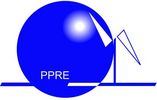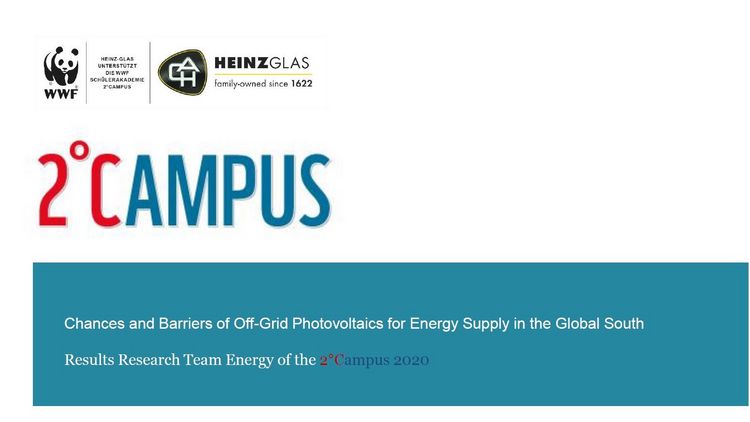Over the period of five months, the young participants perform their own research projects in one out of four different climate change related topics - renewable energy, mobility, nutrition or housing – in order to identify potentials for greenhouse gas reductions. Their research process is supported by scientists from different German universities. For three years, the renewable energy groups are supervised and supported by Christiane.
This year, due to the Corona pandemic and related restrictions, research activities of school students were not allowed in university laboratories. Therefore, Christiane and her team of six very motivated school students conducted an online-based research project on the topic "chances and barriers of off-grid photovoltaics for energy supply in the global south". To investigate this topic, the young researchers used different methods - the most important one was an expert survey, which was sent to the international PPRE/EMRE community. Many PPRE and EMRE alumni supported the project by answering the questionnaire and giving an insight into their experiences and opinions as experts in the field of off-grid photovoltaics (PV). Thanks again to all of them for their effort!
The answers from the survey were analysed by the research team using a qualitative content analysis with inductive approach. Thereby, various categories were found regarding the chances & benefits of off-grid PV mentioned by the experts, the identified barriers & issues as well as suggested solution strategies. Comparing different system types (such as pico PV, solar home and multi user systems) as well as different countries, the young researchers extracted one main message from the expert survey: A thorough assessment of the adequate system sizing and design is crucial due to differing individual, regional and cultural needs as well as specific technical aspects and options of different system types.
To complement their insights from the expert survey and literature research, the young scientists also performed some experiments at home. They investigated two different pico-PV systems by using very simple experimental equipment such as their cell phones for light intensity and spectra measurements. The conclusion from the experimental part of the research project is, that a clarification of needs and possibilities is a prerequisite for adequate decision making – even if the decision has to be made within one system type, i.e. in this case between two different pico PV systems.
The full presentation of the research project including all results is available on WWF Germany’s website (https://www.wwf-jugend.de/public/admin/2-Grad-Campus-Ergebnisse-Energie-2020.pdf). If you have any questions, you are welcome to reach out to the renewable energy team through this email address: 2degreeCampus-energy2020@protonmail.com
Kindest regards and thanks again to the PPRE/EMRE community for the support,
Annis, Antonia, Bianca, Charlotte, Christiane, Felix, Sonja
– the renewable energy team of the WWF 2°Campus 2020


